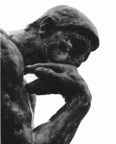There are no official rosters published after 1982 and membership for later years is speculative. Some news organizations refer to them as a power elite.
A power elite, in political and sociological theory, is a small group of people who control a disproportionate amount of wealth, privilege, and access to decision-making of global consequence. The term was coined by Charles Wright Mills in his 1956 book, The Power Elite, which describes the relationship between individuals at the pinnacles of political, military, and economic institutions, noting that these people share a common world view.
See Also:
http://en.wikipedia.org/wiki/The_Establishment
The Establishment is a term used to refer to the dominant group or elite holding the effective power or authority in a nation, in particular when viewed as being opposed to change. It is often used for the traditional ruling class or power elite and the structures of society that they control. The term can be used to describe specific entrenched elite structures in specific institutions, but is usually informal in application. The term is most often used in Britain, where it includes leading politicians, senior civil servants, the most important financiers, and industrialists, governors of the BBC, and the Royal Court. For example, candidates for political office are often said to have to impress the "party establishment" in order to win endorsement. The term in this sense was coined by the British journalist Henry Fairlie, who in September 1955 in the London magazine The Spectator defined that network of prominent, well-connected people as "the Establishment", explaining:
- "By the 'Establishment', I do not only mean the centres of official power—though they are certainly part of it—but rather the whole matrix of official and social relations within which power is exercised. The exercise of power in Britain (more specifically, in England) cannot be understood unless it is recognised that it is exercised socially."[1]
The term was quickly picked up in newspapers and magazines all over London, making Fairlie famous. He had not been the first to use The Establishment in this fashion; Ralph Waldo Emerson had it a century before[2] – the Oxford English Dictionary would cite Fairlie's column as its locus classicus.
This use of the word was presumably influenced by the British term established church for the official churches in Great Britain. The term was soon found useful in discussing power elites in many countries, and the English word is used as a loanword in many languages.
Sociologically speaking, one who does not belong to "The Establishment" is an "outsider".
Silovik (Russian: силови́к, IPA: [sʲɪlɐˈvʲik]; plural: siloviki, Russian: силовики́, IPA: [sʲɪləvʲɪˈkʲi]) is a Russian word for politicians from the security or military services, often the officers of the former KGB, the FSB, the Federal Narcotics Control Service and military or other security services who came into power. It can also refer to security-service personnel from any country or nationality.
The term ruling class refers to the social class of a given society that decides upon and sets that society's political policy - assuming there is one such particular class in the given society.
Sometimes there is a ruling class in a particular sector of the upper class that adheres to quite specific circumstances: it has both the most materialwealth and the most widespread influence over all the other classes, and it chooses to actively exercise that power to shape the direction of a locality, a country, and/or the world. Most of the upper class does not fit the fundamentals of this description, but some do.
Most stable groups of social animals (including humans) have a "ruling class". The decision makers in the group may change according to the decision-type and/ or the time of observation. For example, it used to be assumed that modern societies were patriarchal and the elders dominated the real decisions, even though many market economies focus on the decisionmakers of each particular (assuredly minor) market sector, who may in fact be children or women.
The sociologist C. Wright Mills argued that the ruling class differs from the power elite. The latter simply refers to the small group of people with the most political power. Many of them are politicians, hired political managers, and military leaders.
In conspiracy theory, the term New World Order or NWO refers to the emergence of a bureaucratic collectivist one-world government.
The common theme in conspiracy theories about a New World Order is that a secretive power elite with a globalist agenda is conspiring to eventually rule the world through an authoritarian world government — which replaces sovereign nation-states — and an all-encompassingpropaganda that ideologizes its establishment as the culmination of history's progress. Significant occurrences in politics and finance are speculated to be orchestrated by an unduly influential cabal operating through many front organizations. Numerous historical and current events are seen as steps in an on-going plot to achieve world domination through secret political gatherings and decision-making processes.




